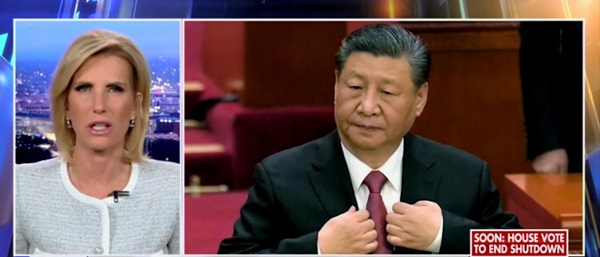Censorship Industrial Complex
Australia passes digital ID bill, raising fears of government surveillance without accountability

From LifeSiteNews
By David James
Critics argue the legislation, enacted under the guise of increased security, ramps up government surveillance and control, with no accountability mechanisms for public sector misuse.
The Australian Parliament has passed the Digital ID Bill 2024 and Digital ID (Transitional and Consequential Provisions) Bill 2024 which, it claims, will provide “certainty” for the expansion of the existing Australian government digital ID system.
The move is being presented as a way to improve “privacy and security” for people when interacting online by “verifying” users’ identities. The government claims that the legislation will reduce fraud and other malpractice by private actors, but the bill says nothing about the public actors, the government. The implication is that that the public sector will never do anything wrong with its increased powers, raising the suspicion that it is yet another move by state and federal governments to increase surveillance and control over the lives of citizens.
Australia is a paternalistic society and there is no mechanism to hold the executive branch of government accountable – indeed the possibility is rarely raised. There is thus nothing to stop more intrusions into people’s privacy by the government.
Commenting on the passing of the bill, Queensland Senator Malcolm Roberts from the One Nation Party said that, while the voluntary system has been presented as a measure for security and convenience it could lead to significant privacy breaches, cyber-attacks, and government overreach. He described it as a potential attack on Australians’ “freedom, privacy, and way of life,” especially if it eventually becomes mandatory.
Roberts pointed to the Digital ID bill, the Online Safety Act, the Identity Services Verification Act, and the Misinformation and Disinformation Bill as elements of what looks like a coordinated plan by the federal government “to identify, punish and imprison anyone who resists this slide back into serfdom.” In the initial inquiry into the Digital ID bill, he said, the Human Rights Commission “drew attention to the lack of protection of privacy and human rights in the bill,” but it was ignored. Roberts added that the bill is very similar to legislation being implemented in other Western nations.
A significant proportion of the Australian population has concluded that politicians and the public sector cannot be trusted and that they fail to scrutinize their own actions. As if to underline this unaccountability, the Digital ID bill was passed using “tricks used to stifle debate and public discussion,” according to former federal senator Craig Kelly. He said on X (formerly Twitter) that the way the bill was passed was “contrary to precedent, the spirit of the Constitution and [the] Westminster tradition.”
“Labor introduced the Digital ID in the Senate (the House of review) instead of the House of Representatives,” Kelly wrote. “Then they guillotined debate in the Senate. And in House of Representatives, Labor shifted debate to the Federation Chamber where the Liberals put up token resistance with only one Liberal MP and two National MP’s bothering to speak on the Bill – and they didn’t even try any amendments to protect privacy or to try and safeguard against it being made compulsory.”
🔥🔥🔥BREAKING 😥😥😥
At 4.50pm this afternoon, and with only token opposition from the Liberals & Nationals the Digital ID Bill was passed by the Parliament.
A sad day for Australia, as the nation marches further down the road towards a totalitarian society.
And never… pic.twitter.com/GjVtIxwK0t
— Craig Kelly (@CraigKellyPHON) May 16, 2024
The aggressive government actions during the COVID crisis have shown just how abusive Australian politicians and the public sector can be, and how few ways there are for citizens to protect themselves. The restrictions on free speech, free movement, and freedom of thought were extreme.
The government mendacity continues – at a time when federal laws against “disinformation and misinformation” are being debated. There is constant propaganda in government-funded media outlets about what an effective job was done against the “pandemic” by pursuing lockdowns and mass vaccination. It is false; there was no pandemic. The Australian Bureau of Statistics found that 2020 and 2021 had the lowest number of deaths from respiratory diseases since records have been kept.
The federal government, in a statement, is giving the impression that the move is merely a way to protect vulnerable Australians, to give certainty for providers and services, and to provide transparency in order “to build public trust.” But what is not said is more important than what is said. There is no mechanism for Australians to redress wrongs committed by the government.
What should happen is something that has never existed in Australia: the establishment of a way for Australians to hold the public sector accountable and stop their governments becoming a menace, as occurred during the “pandemic.” Unless public servants are at risk of being penalized, or at least of having their actions constrained, there is a strong likelihood that fears about the Digital ID Bill will ultimately be realized.
Censorship Industrial Complex
EU’s “Democracy Shield” Centralizes Control Over Online Speech

Presented as a defense of democracy, the plan reads more like the architecture of a managed reality.
|
European authorities have finally unveiled the “European Democracy Shield,” we’ve been warning about for some time, a major initiative that consolidates and broadens existing programs of the European Commission to monitor and restrict digital information flows.
Though branded as a safeguard against “foreign information manipulation and interference (FIMI)” and “disinformation,” the initiative effectively gives EU institutions unprecedented authority over the online public sphere.
At its core, the framework fuses a variety of mechanisms into a single structure, from AI-driven content detection and regulation of social media influencers to a state-endorsed web of “fact-checkers.”
The presentation speaks of defending democracy, yet the design reveals a machinery oriented toward centralized control of speech, identity, and data.
One of the more alarming integrations links the EU’s Digital Identity program with content filtering and labelling systems.
The Commission has announced plans to “explore possible further measures with the Code’s signatories,” including “detection and labelling of AI-generated and manipulated content circulating on social media services” and “voluntary user-verification tools.”
Officials describe the EU Digital Identity (EUDI) Wallet as a means for “secure identification and authentication.”
In real terms, tying verified identity to online activity risks normalizing surveillance and making anonymity in expression a thing of the past.
The Democracy Shield also includes the creation of a “European Centre for Democratic Resilience,” led by Justice Commissioner Michael McGrath.
Framed as a voluntary coordination hub, its mission is “building capacities to withstand foreign information manipulation and interference (FIMI) and disinformation,” involving EU institutions, Member States, and “neighboring countries and like-minded partners.”
The Centre’s “Stakeholder Platform” is to unite “trusted stakeholders such as civil society organizations, researchers and academia, fact-checkers and media providers.”
In practice, this structure ties policymaking, activism, and media oversight into one cooperative network, eroding the boundaries between government power and public discourse.
Financial incentives reinforce the system. A “European Network of Fact-Checkers” will be funded through EU channels, positioned as independent yet operating within the same institutional framework that sets the rules.
The network will coordinate “fact-checking” in every EU language, maintain a central database of verdicts, and introduce “a protection scheme for fact-checkers in the EU against threats and harassment.”
Such an arrangement destroys the line between independent verification and state-aligned narrative enforcement.
The Commission will also fund a “common research support framework,” giving select researchers privileged access to non-public platform data via the
Digital Services Act (DSA) and Political Advertising Regulation.
Officially, this aims to aid academic research, but it could also allow state-linked analysts to map, classify, and suppress online viewpoints deemed undesirable.
Plans extend further into media law. The European Commission intends to revisit the Audiovisual Media Services Directive (AVMSD) to ensure “viewers – particularly younger ones – are adequately protected when they consume audiovisual content online.”
While framed around youth protection, such language opens the door to broad filtering and regulation of online media.
Another initiative seeks to enlist digital personalities through a “voluntary network of influencers to raise awareness about relevant EU rules, including the DSA.” Brussels will “consider the role of influencers” during its upcoming AVMSD review.
Though presented as transparent outreach, the move effectively turns social media figures into de facto promoters of official EU messaging, reshaping public conversation under the guise of awareness.
The Shield also introduces a “Digital Services Act incidents and crisis protocol” between the EU and signatories of the Code of Practice on Disinformation to “facilitate coordination among relevant authorities and ensure swift reactions to large-scale and potentially transnational information operations.”
This could enable coordinated suppression of narratives across borders. Large platforms exceeding 45 million EU users face compliance audits, with penalties reaching 6% of global revenue or even platform bans, making voluntary cooperation more symbolic than real.
A further layer comes with the forthcoming “Blueprint for countering FIMI and disinformation,” offering governments standardized guidance to “anticipate, detect and respond” to perceived information threats. Such protocols risk transforming free expression into a regulated domain managed under preemptive suspicion.
Existing structures are being fortified, too. The European Digital Media Observatory (EDMO), already central to “disinformation” monitoring, will receive expanded authority for election and crisis surveillance. This effectively deepens the fusion of state oversight and online communication control.
Funding through the “Media Resilience Programme” will channel EU resources to preferred outlets, while regulators examine ways to “strengthen the prominence of media services of general interest.”
This includes “impact investments in the news media sector” and efforts to build transnational platforms promoting mainstream narratives. Though described as supporting “independent and local journalism,” the model risks reinforcing state-aligned voices while sidelining dissenting ones.
Education and culture are not exempt. The Commission plans “Guidelines for teachers and educators on tackling disinformation and promoting digital literacy through education and training,” along with new “media literacy” programs and an “independent network for media literacy.”
While such initiatives appear benign, they often operate on the assumption that government-approved information is inherently trustworthy, conditioning future generations to equate official consensus with truth.
Viewed as a whole, the European Democracy Shield represents a major institutional step toward centralized narrative management in the European Union.
Under the language of “protection,” Brussels is constructing a comprehensive apparatus for monitoring and shaping the flow of information.
For a continent that once defined itself through open debate and free thought, this growing web of bureaucratic control signals a troubling shift.
Efforts framed as defense against disinformation now risk becoming tools for suppressing dissent, a paradox that may leave European democracy less free in the name of making it “safe.”
|
|
|
|
You read Reclaim The Net because you believe in something deeper than headlines; you believe in the enduring values of free speech, individual liberty, and the right to privacy.
Every issue we publish is part of a larger fight: preserving the principles that built this country and protecting them from erosion in the digital age.
With your help, we can do more than simply hold the line: we can push back. We can shine a light on censorship, expose growing surveillance overreach, and give a voice to those being silenced.
If you’ve found any value in our work, please consider becoming a supporter.
Your support helps us expand our reach, educate more people, and continue this work.
Please become a supporter today.
Thank you for your support.
|
Censorship Industrial Complex
School Cannot Force Students To Use Preferred Pronouns, US Federal Court Rules


From the Daily Caller News Foundation
“Our system forbids public schools from becoming ‘enclaves of totalitarianism.’”
A federal appeals court in Ohio ruled Thursday that students cannot be forced to use preferred pronouns in school.
Defending Education (DE) filed the suit against Olentangy Local School District (OLSD) in 2023, arguing the district’s anti-harassment policy that requires students to use the “preferred pronouns” of others violates students’ First Amendment rights by “compelling students to affirm beliefs about sex and gender that are contrary to their own deeply held beliefs.” Although a lower court attempted to shoot down the challenge, the appeals court ruled in a 10-7 decision that the school cannot “wield their authority to compel speech or demand silence from citizens who disagree with the regulators’ politically controversial preferred new form of grammar.”
Because the school considers transgender students to be a protected class, students who violated the anti-harassment policy by referring to such students by their biological sex risked punishments such as suspension and expulsion, according to DE.
Dear Readers:
As a nonprofit, we are dependent on the generosity of our readers.
Please consider making a small donation of any amount here.
Thank you!
“American history and tradition uphold the majority’s decision to strike down the school’s pronoun policy,” the court wrote in its opinion. “Over hundreds of years, grammar has developed in America without governmental interference. Consistent with our historical tradition and our cherished First Amendment, the pronoun debate must be won through individual persuasion, not government coercion. Our system forbids public schools from becoming ‘enclaves of totalitarianism.’”
OLSD did not respond to the Daily Caller News Foundation’s request for comment.
“We are deeply gratified by the Sixth Circuit’s intensive analysis not only of our case but the state of student First Amendment rights in the modern era,” Nicole Neily, founder and president of DE, said in a statement. “The court’s decision – and its many concurrences – articulate the importance of free speech, the limits and perils of public schools claiming to act in loco parentis, and the critical role of persuasion – rather than coercion – in America’s public square.”
“Despite its ham-fisted attempt to moot the case, Olentangy School District was sternly reminded by the 6th circuit en banc court that it cannot force students to express a viewpoint on gender identity with which they disagree, nor extend its reach beyond the schoolhouse threshold into matters better suited to an exercise of parental authority,” Sarah Parshall Perry, vice president and legal fellow at DE, said in a statement. “A resounding victory for student speech and parental rights was long overdue for families in the school district and we are thrilled the court’s ruling will benefit others seeking to vindicate their rights in the classroom and beyond.”
-

 armed forces2 days ago
armed forces2 days agoCanadian veteran says she knows at least 20 service members who were offered euthanasia
-

 Business2 days ago
Business2 days agoCarney shrugs off debt problem with more borrowing
-

 Frontier Centre for Public Policy1 day ago
Frontier Centre for Public Policy1 day agoRichmond Mayor Warns Property Owners That The Cowichan Case Puts Their Titles At Risk
-

 Daily Caller1 day ago
Daily Caller1 day agoLaura Ingraham’s Viral Clash With Trump Prompts Her To Tell Real Reasons China Sends Students To US
-

 Business1 day ago
Business1 day agoSluggish homebuilding will have far-reaching effects on Canada’s economy
-

 Automotive2 days ago
Automotive2 days agoThe high price of green virtue
-

 Bruce Dowbiggin2 days ago
Bruce Dowbiggin2 days agoMaintenance Mania: Since When Did Pro Athletes Get So Fragile?
-

 Alberta2 days ago
Alberta2 days agoHow economic corridors could shape a stronger Canadian future










